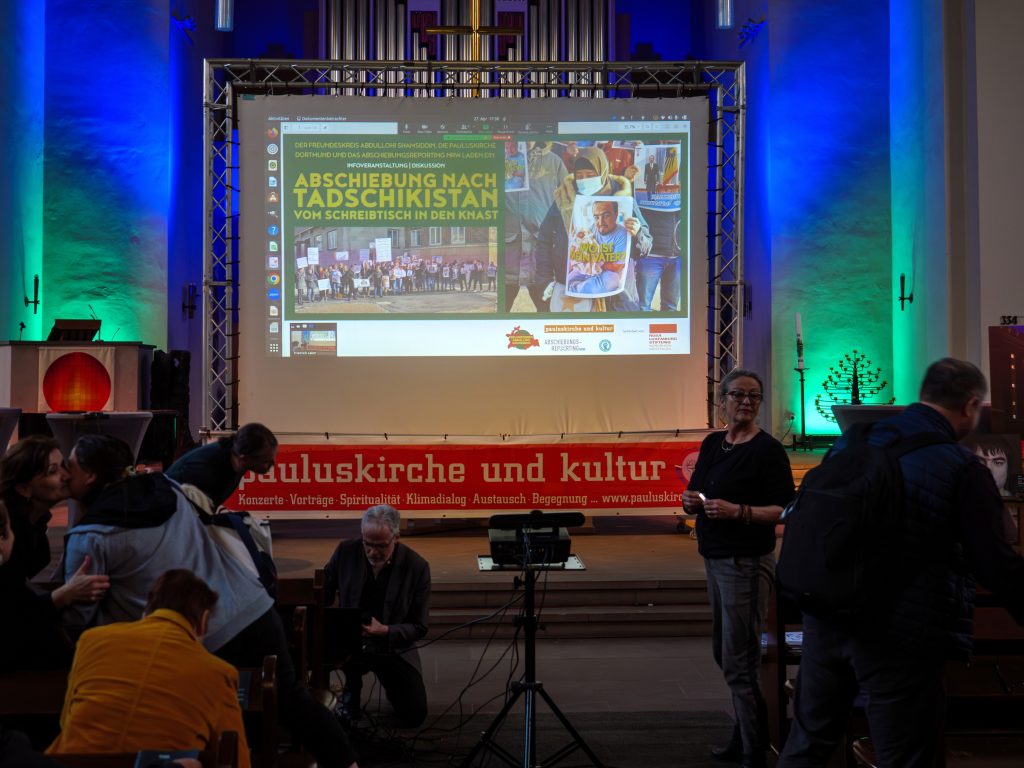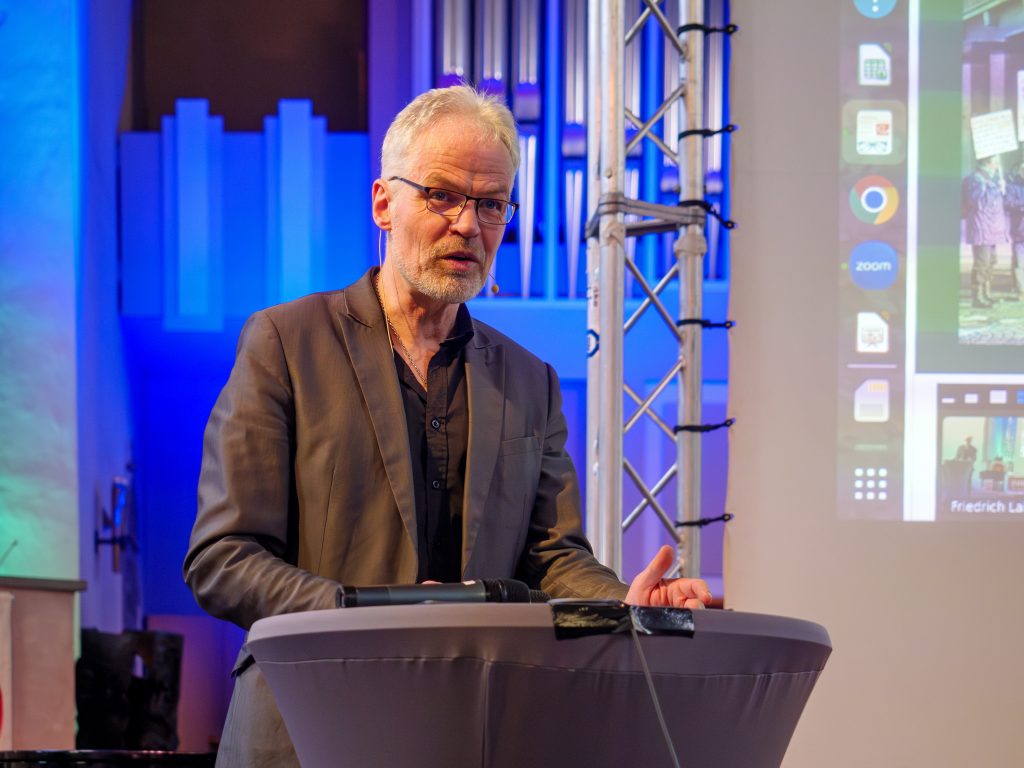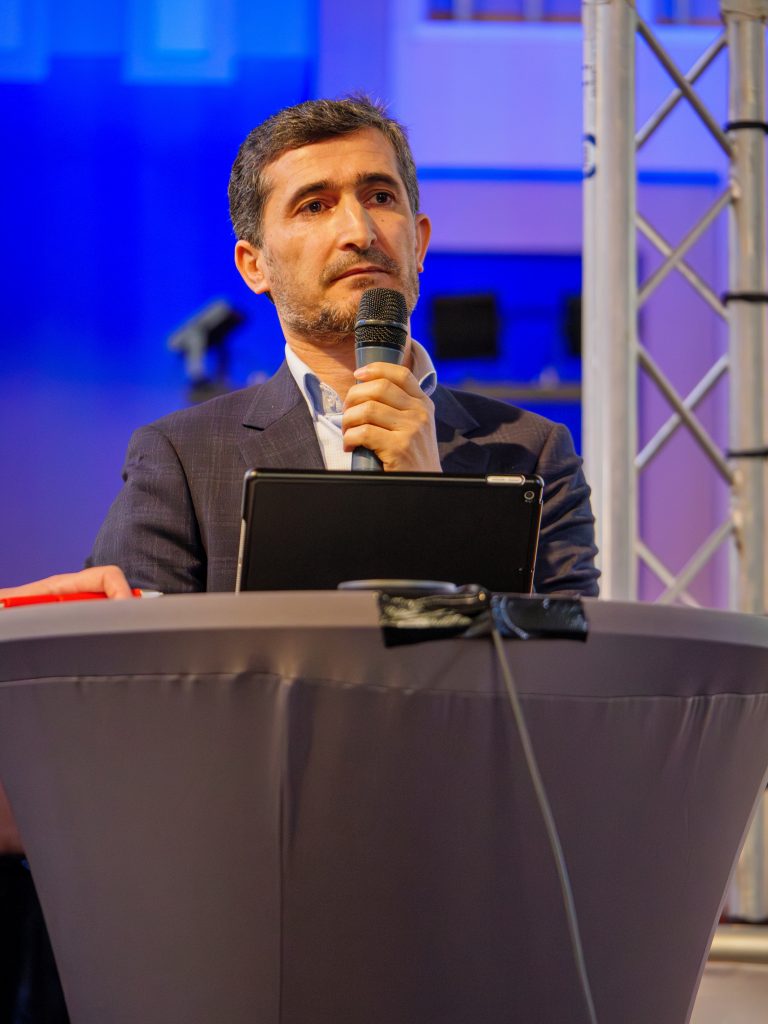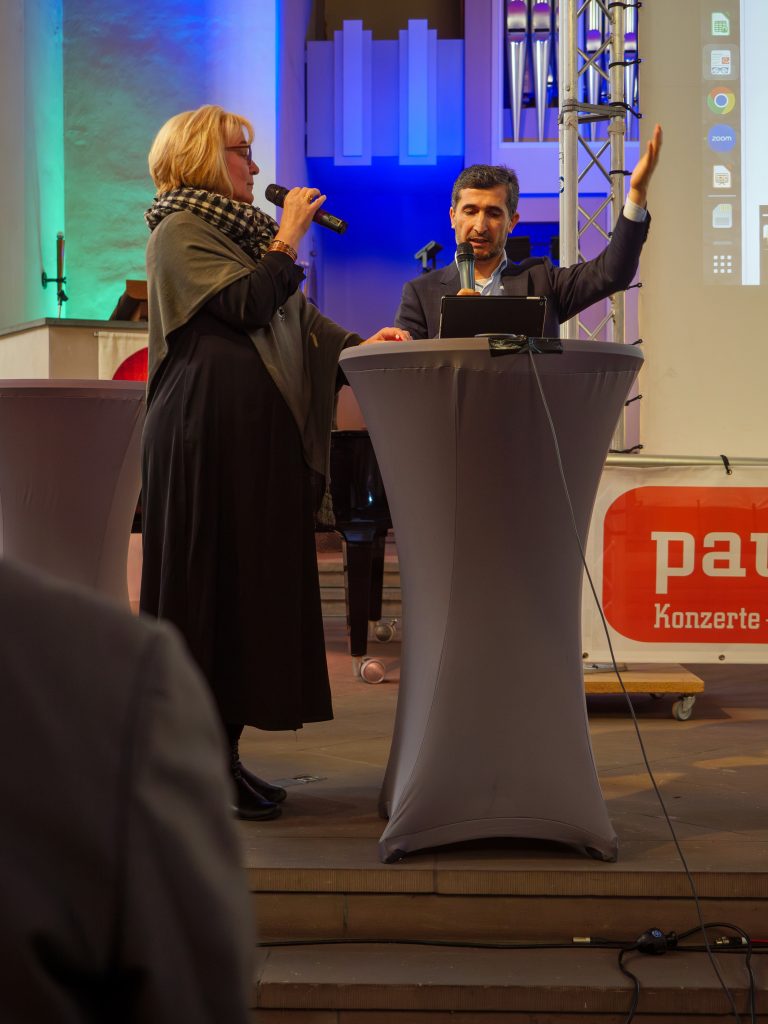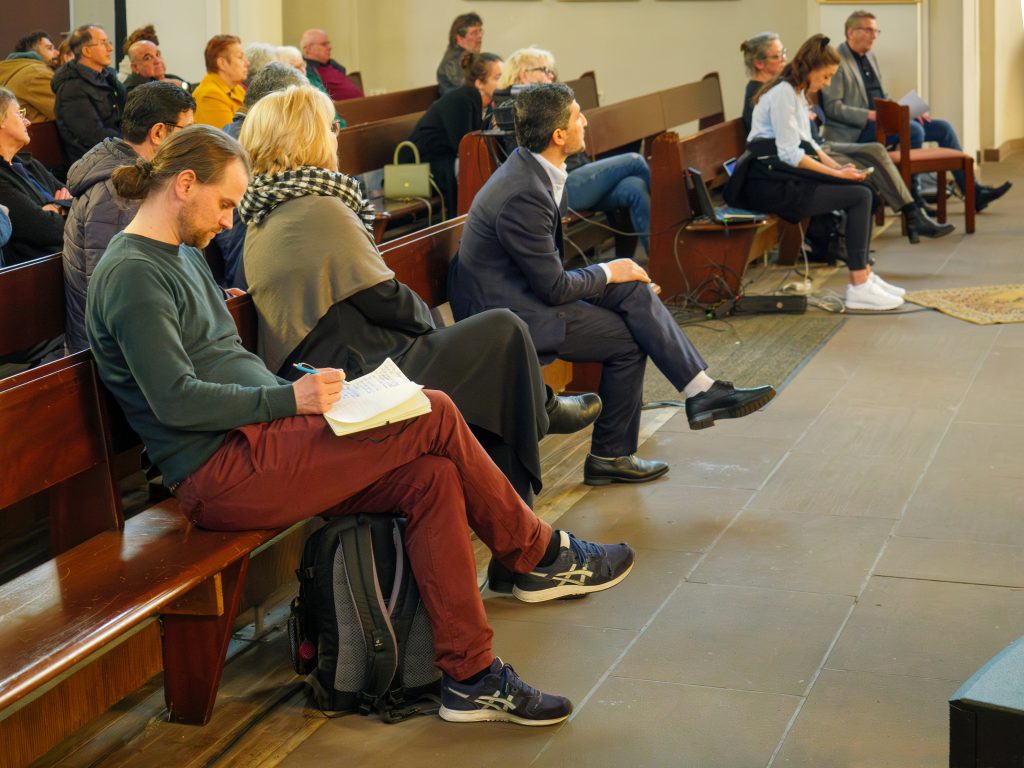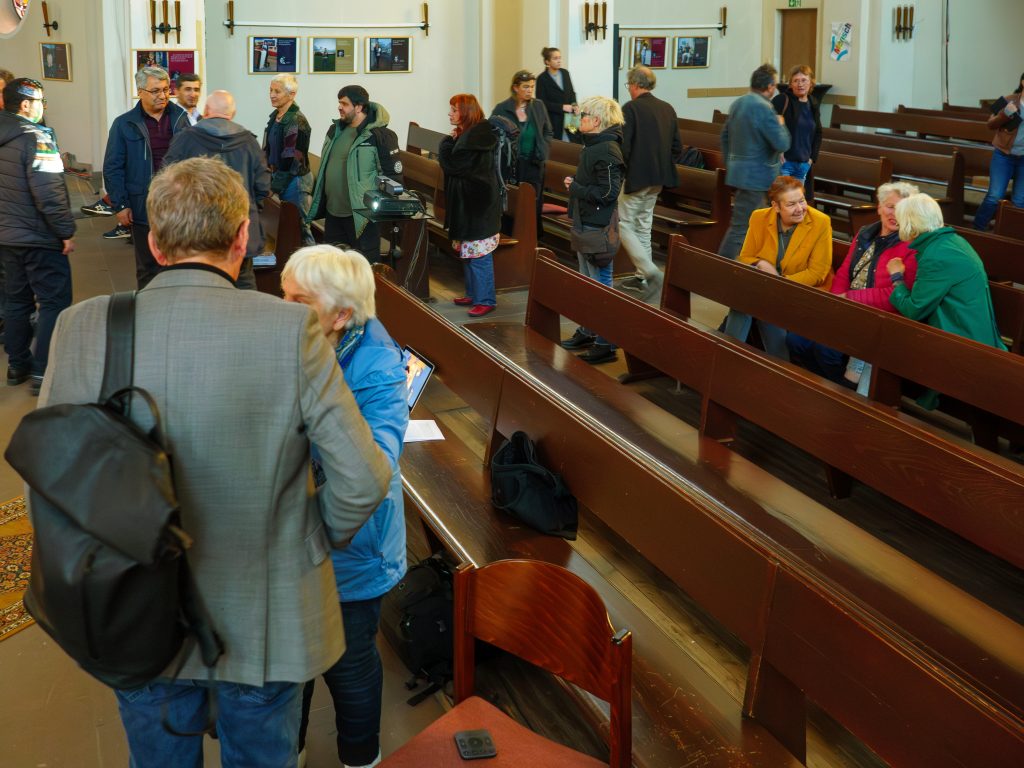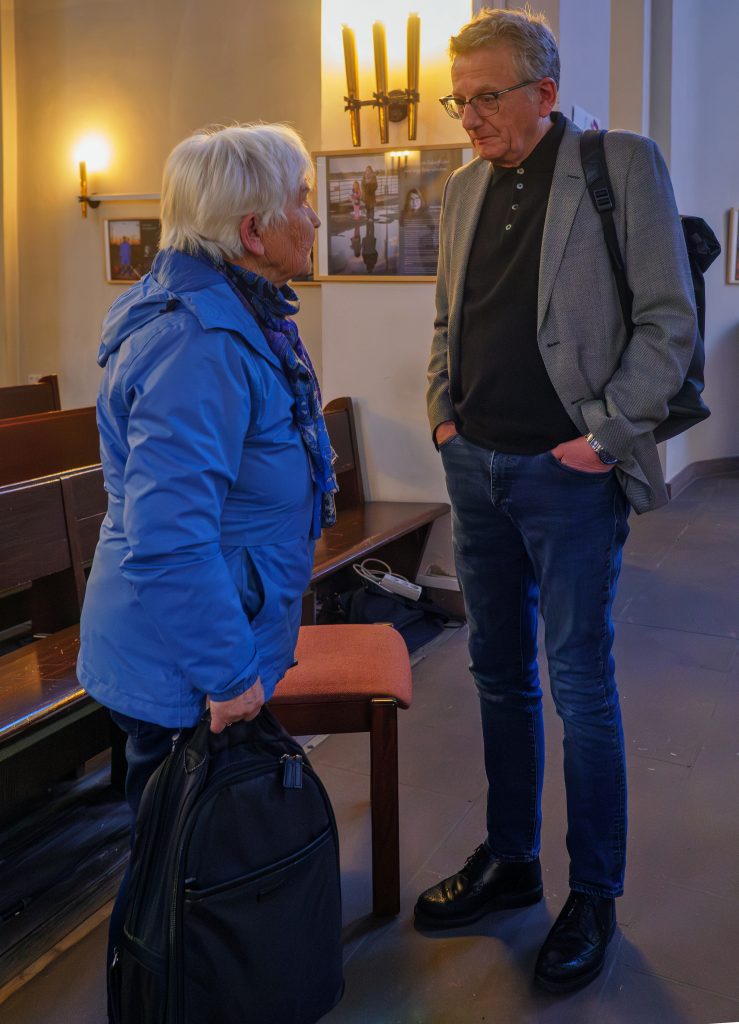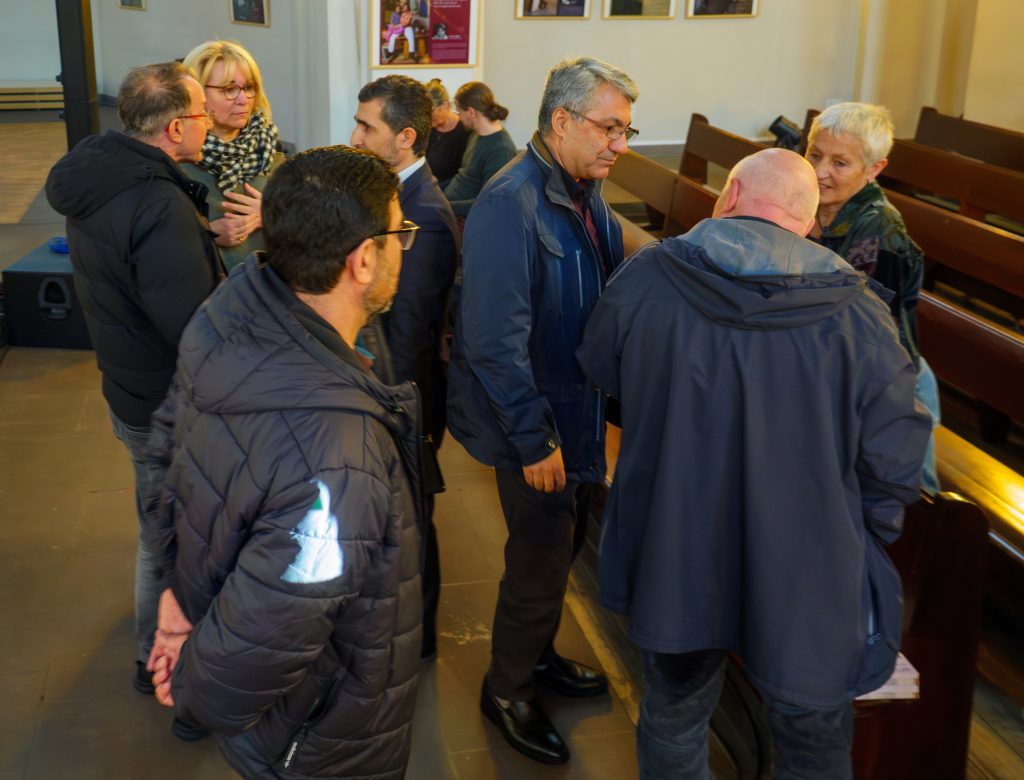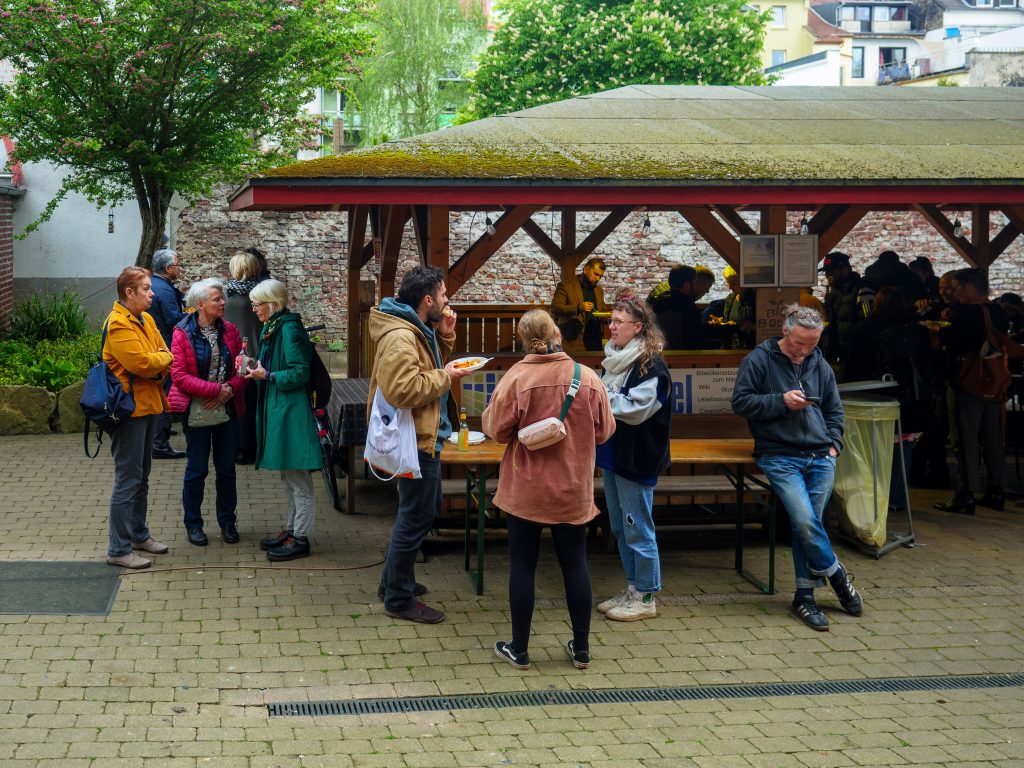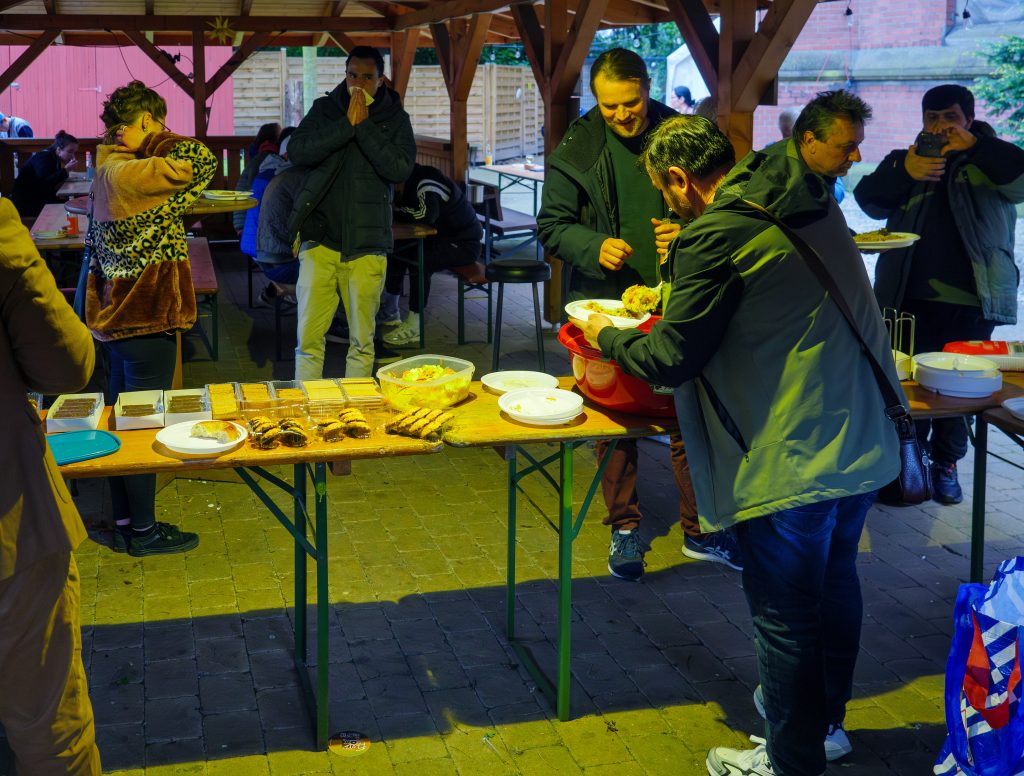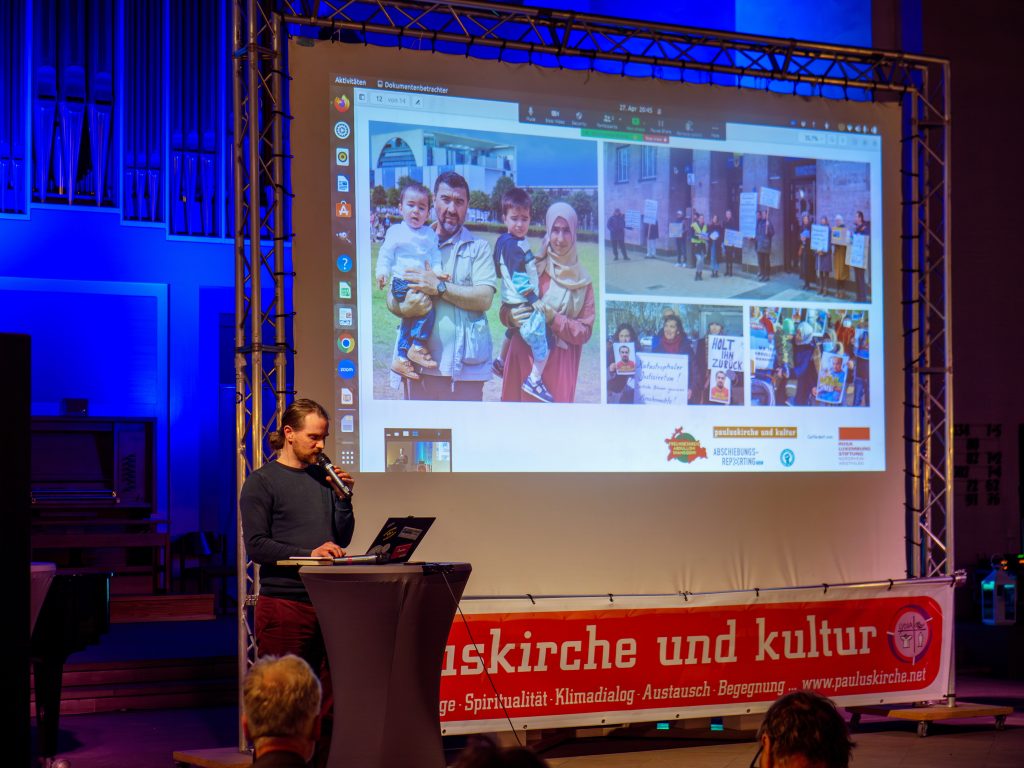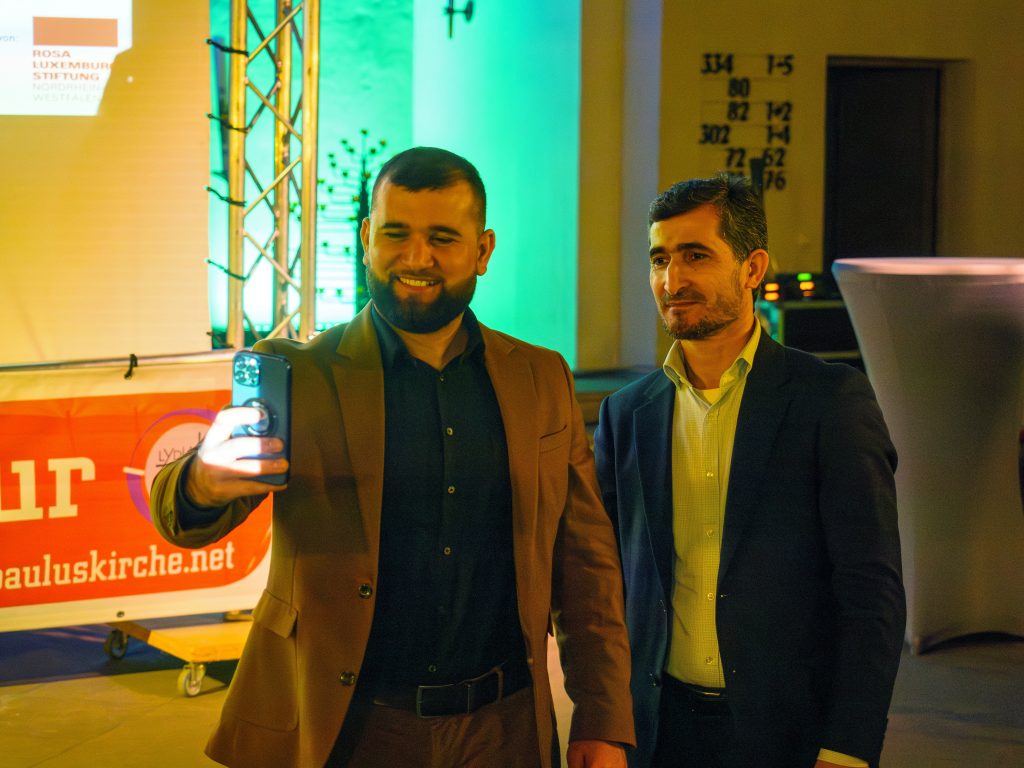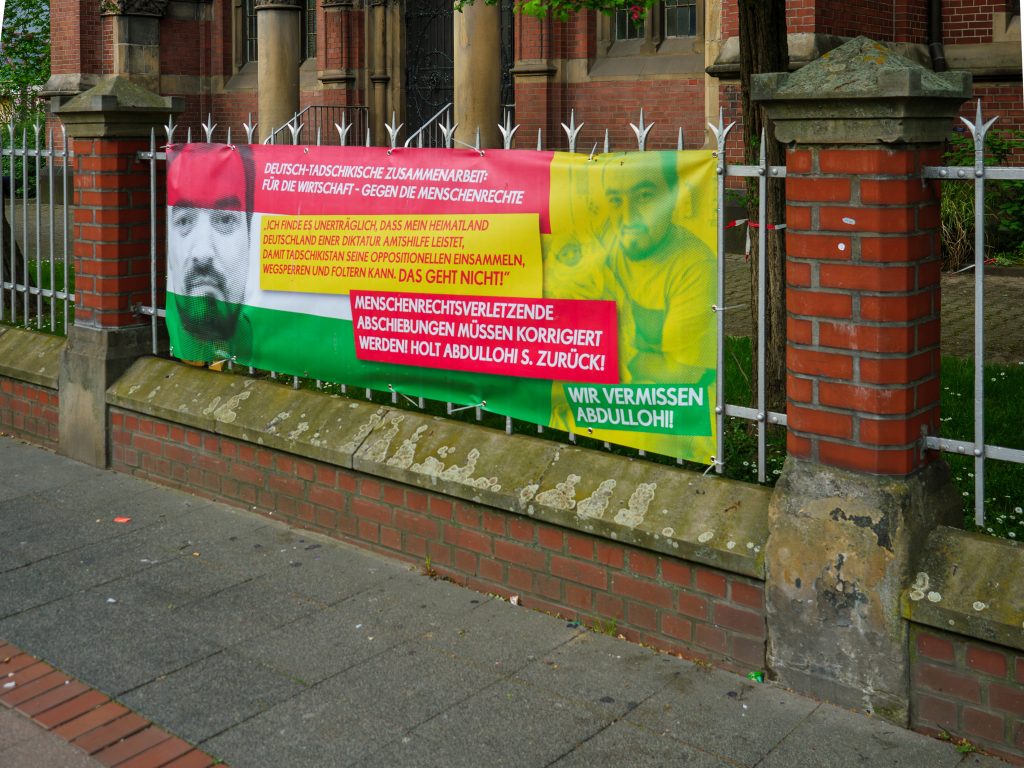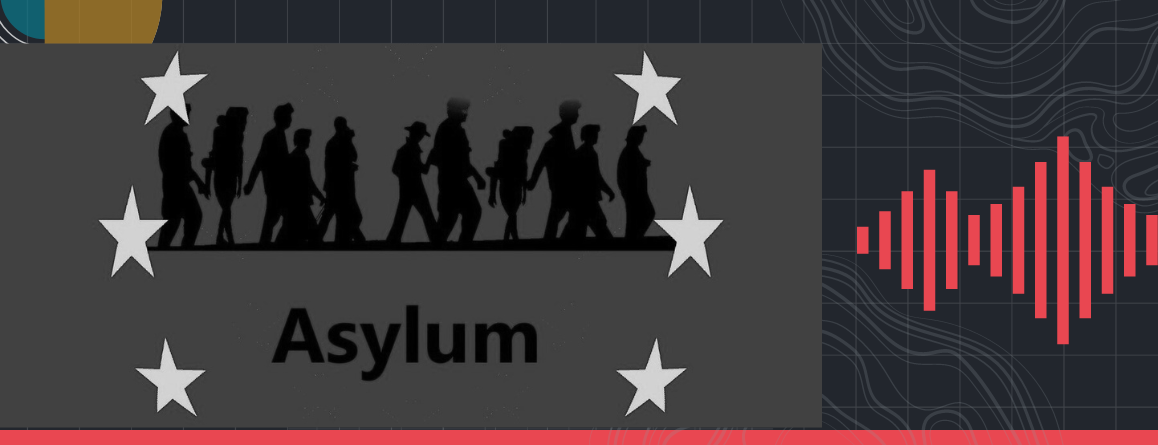On Saturday, April 27, 2024 an event organized by activists with support of Rosa Luxemburg Foundation North Rhine-Westphalia took place and was focused on the situation of Tajik asylum seekers in Germany and in other European countries. The case of Abdullohi Shamsiddin, who was deported from Germany to Tajikistan in 2022 is now serving a seven-year prison sentence was a central example of lack of fair trial and injustice committed towards asylum seekers in Europe. The event was moderated by Friedrich Laker – Pastor at Evangelical Church of Westphalia.
The event addressed the human rights situation in Tajikistan, particularly the government’s crackdown on opposition parties, political groups, activists and their family members. It also highlighted the issue of transnational repression, where Tajikistan targets its citizens living abroad to silence criticism.
The event was aimed to raise awareness about:
- The human rights situation in Tajikistan: The event highlighted the Tajik government’s repression of political opposition and civil liberties.
- Transnational repression: The case of Abdullohi Shamsiddin exemplifies how Tajikistan extends its repressive tactics beyond its borders.
- The role of EU member states: The event criticised the cooperation of EU member states, particularly Germany, in deporting individuals to Tajikistan despite the risk of torture and human rights violations.
- Protect Tajik citizens living abroad from harassment by the Tajik government.
The speakers of the event were:
- Hugh Williamson, Human Rights Watch: Mr.Williamson discussed the human rights situation in Tajikistan, including the crackdown on opposition parties and the climate of fear created by the government. He also addressed the case of Abdullohi Shamsiddin and the broader issue of transnational repression by Tajikistan.
- Leila Nazgül Seiitbek, Freedom For Eurasia: Mrs. Seiitbek spoke about the trend of Central Asian refugees being expelled from the European Union and abuse of anti-terrorism and anti-extremism legislation against the regime critics.
- Mr. Komilov: provided insights from Tajikistan.
- Cornelia Suhan, Friends of Abdullohi Shamsiddin: Suhan discussed the specifics of Shamsiddin’s case and the German authorities’ role in his deportation.
- Sebastian Rose, Deportation Reporting NRW: Rose shared insights on deportation practices in North Rhine-Westphalia, Germany.
- Maria Shakura, Refugee Activist: Shakura provided perspectives on the challenges faced by refugees.
- MEP Dietmar Köster and Dr. Sonja Grabowsky: Köster, a Member of the European Parliament, and his scientific advisor, Dr. Sonja Grabowsky, participated in the discussion.
- MP Clara Bünger: Ms.Bünger, a Member of Parliament, delivered a video message.
The event centered around Abdullohi Shamsiddin, who was deported to Tajikistan from Germany and subsequently sentenced to seven years in prison. It emphasized that human rights organizations, including Human Rights Watch and Freedom for Eurasia have consistently advocated for the German authorities to acknowledge the injustice of Shamsiddin’s deportation and demand his release.
Human Rights Situation in Tajikistan
It was highlighted that Shamsiddin’s case is not an isolated incident, attributing it to Tajikistan’s poor human rights record. A context was provided by describing Tajikistan as one of the poorest Central Asian countries, with a population of roughly 10 million. The country, bordered by other Central Asian nations, Afghanistan, and China, bears the scars of a civil war in the 1990s. The concerning human rights situation in Gorno-Badakhshan, an autonomous mountainous region within Tajikistan was also pointed out.
The extended rule of President Emomali Rahmon, who is in power since 1992, is a significant factor contributing to Tajikistan’s authoritarianism and disregard for basic human rights. A turning point happened a decade earlier when the Rakhmon regime initiated a systematic crackdown on legal opposition parties with parliamentary representation. This included banning the Islamic Renaissance Party of Tajikistan, a significant political force in post-independence Tajikistan.
This crackdown extended to other groups deemed critical of the government, such as Group 24, resulting in the imprisonment or exile of their leaders. Several prominent lawyers were also imprisoned during this period. This crackdown created a climate of fear, leaving political opponents, independent journalists, and human rights activists vulnerable to harassment or imprisonment.
Impact of Repression
The consequences of this repressive environment are hundreds of people imprisoned on politically motivated charges, severe internet restrictions, a lack of independent media, and the suppression of fundamental freedoms like expression and assembly.
Transnational Repression
Tajikistan’s repression extends beyond its borders, citing the government’s attempts to silence criticism from citizens residing abroad. Tajikistan welcomed cooperation with German authorities in deporting Shamsiddin and other dissidents. Similar cases occur across Europe under the influence of anti-refugee rhetoric.
An incident during President Rahmon’s visit to Berlin in September 2023 demonstrates Tajikistan’s tactics of intimidation. Protests by Tajiks in Berlin were met with immediate repercussions in Tajikistan, as approximately 50 individuals associated with the protests and relatives of participants of the protest in Tajikistan faced harassment and visits from government officials.
Tajikistan is not alone in employing transnational repression, with China and Russia as other examples. Event stressed the importance of the German government leveraging its influence to not only pressure Tajikistan to cease human rights violations and release Shamsiddin but also to protect Tajik citizens in Germany from harassment by the Tajik government.
Abuse of Anti-Terrorism/Anti-Extremist Legislation
Event participants also discussed that the Central Asian states, particularly Tajikistan, utilize anti-extremist and anti-terrorist charges to stifle dissent and target political opponents, even those residing abroad. This practice extends to individuals seeking refuge in the European Union. Authoritarian states, such as Tajikistan often fabricate charges to initiate extradition or deportation of individuals back to Tajikistan, where they face potential torture, unfair trials, and unlawful imprisonment.
European States fail to properly analyse and identify the false charges simply recording the false data into their security systems, such as Schengen Information System (SIS). There are numerous cases where asylum seekers were recorded in the SIS and flagged as public threat by EU member states where the asylum seeker never visited, based solely on false information provided by Tajikistan. This is polluting the information field for international anti-terrorism, anti-extremism and intelligence authorities. This may result in wrong security and intelligence decisions putting European countries in danger.
Speakers pointed out the following:
- Exploitation of Legal Mechanisms: Authoritarian countries misuse international legal mechanisms, including extradition procedures and Interpol red notices, to secure the return of individuals based on unsubstantiated accusations.
- Targeting of Dissidents and Refugees: Anti-extremist and anti-terrorist legislation is frequently employed to target individuals or groups critical of the government, including those affiliated with organizations like the Islamic Renaissance Party of Tajikistan (IRPT), journalists, human rights defenders and lawyers. This practice affects both those seeking asylum and those already granted refugee status, violating international law and human rights conventions.
- Lack of Due Process and Transparency: Individuals accused of such crimes often face significant obstacles in mounting a legal defense within the EU. Authorities in countries like Lithuania have denied access to case materials, hindering the ability of accused individuals and their legal representatives to challenge the accusations.
- Collaboration of EU Member States: The willingness of EU member states to cooperate with these extradition or deportation requests raises concerns about the EU’s commitment to upholding human rights standards. This cooperation stems partly from the negative perception surrounding migrants and refugees, coupled with the prevailing Islamophobia within the EU.
- Systemic Flaws in EU Asylum Processes: The acceptance of fabricated charges without proper scrutiny highlights significant shortcomings in the EU’s asylum and security assessment procedures. This failure to recognize the fabricated nature of these charges undermines the integrity of international security and intelligence efforts.
Speakers discussed the 2023 report from the Parliamentary Assembly which explicitly identifies transnational repression as a growing threat to human rights and the rule of law. The report details instances of governments manipulating legal procedures to target individuals abroad through detentions, deportations, and other forms of forced rendition. It cites Tajikistan as one of the most frequent perpetrators of transnational repression.
Conclusions
The event aimed to bring together experts, activists, and policymakers to discuss these important issues and advocate for change.
The event calls on the German government and other EU member states to:
- Pressure the Tajik government to end human rights violations.
- Release Abdullohi Shamsiddin and other political prisoners.
